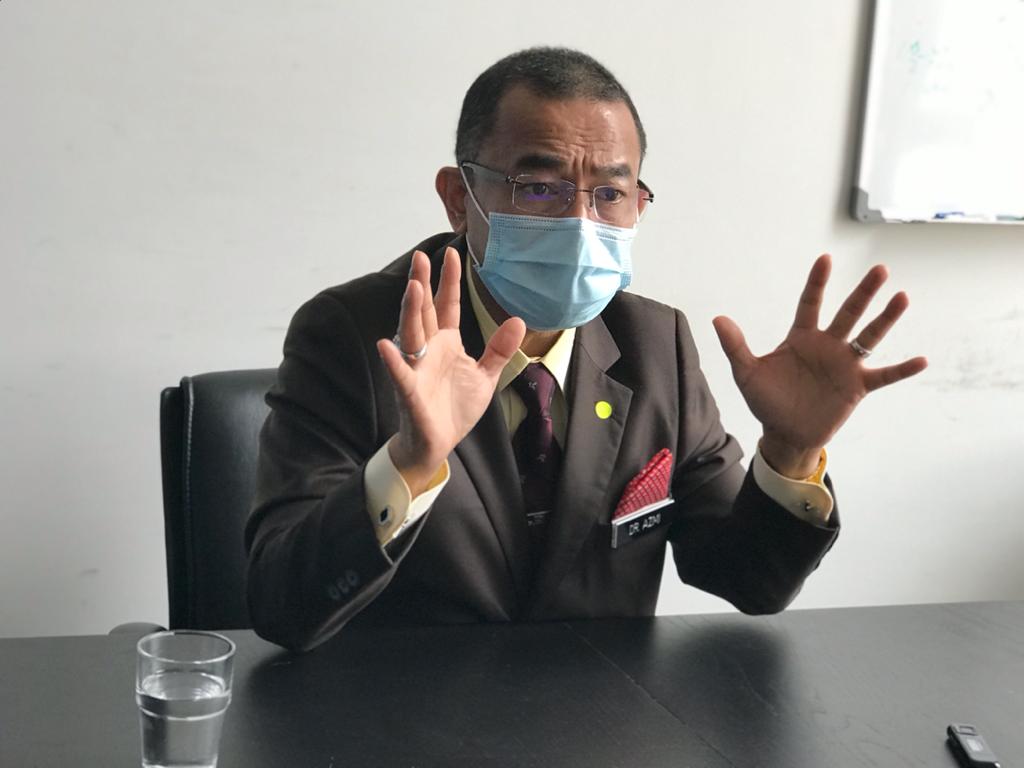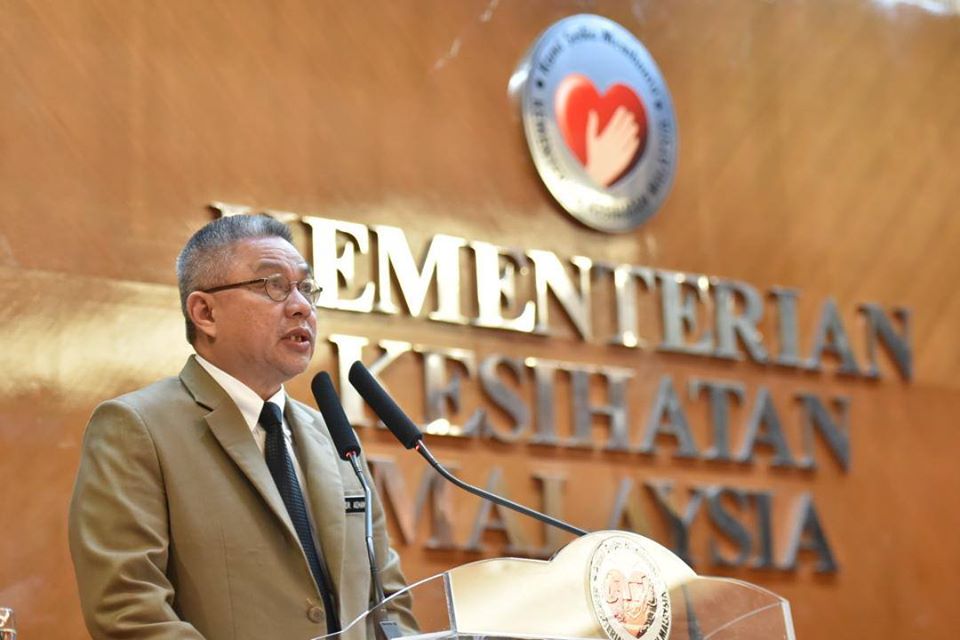KUALA LUMPUR, Dec 17 — Pfizer has sent clinical trial data on its Covid-19 vaccine to local regulators, who will decide by June 14 on whether to approve the first coronavirus vaccine in Malaysia.
Health Minister Dr Adham Baba said the American drugmaker submitted its dossier to the National Pharmaceutical Regulatory Agency (NPRA), under the Ministry of Health (MOH), three days ago on December 14.
According to the NPRA’s Drug Registration Guidance Document, a Priority Review may be granted to expedite an evaluation of a new pharmaceutical product in the event of a pandemic, in the interest of public health.
The evaluation of new pharmaceutical products granted a Priority Review is 120 working days from the date of approval of the Priority Review. Assuming that Pfizer’s application immediately received a Priority Review from December 14, this means that June 14 is the latest date for Malaysia’s first Covid-19 vaccine approval, after taking into account weekends and public holidays.
Dr Adham confirmed that NPRA’s assessment of the coronavirus vaccine by Pfizer and German biotechnology company BioNTech would take a maximum of 120 working days.
“If there is enough data from Pfizer, we can approve it earlier,” Dr Adham told CodeBlue yesterday.
“Certain cases like Covid-19 vaccines will be evaluated carefully and several factors must be met before approval,” he added, citing safety, efficacy, quality, as well as other factors like registration with the United States’ Food and Drug Administration (FDA) and the European Medicines Agency (EMA), as well as registration in the country of the manufacturer.
The US FDA issued on December 11 an emergency-use authorisation to the Pfizer-BioNTech vaccine, finding it to be safe and 95 per cent effective in preventing symptomatic Covid-19 infection, based on a global Phase 3 clinical trial of more than 43,000 participants. EMA, the medicines agency for the European Union, said yesterday that it would meet on December 21 to assess the Pfizer-BioNTech vaccine.
The US, the UK, and Canada have already begun inoculating their citizens with the Pfizer-BioNTech vaccine. Singapore’s regulators have also approved Pfizer’s Covid-19 vaccine, with Prime Minister Lee Hsien Loong saying that the first shipment of the vaccine is expected in Singapore within the next fortnight before year-end.
NPRA’s Assessment May Be Expedited To 90 Working Days

Deputy Health Minister Dr Noor Azmi Ghazali told CodeBlue separately that the NPRA’s evaluation of Pfizer-BioNTech’s vaccine could be expedited to 90 working days as a special case, “depending on how Pfizer answers questions from NPRA”.
If the NPRA’s assessment of Pfizer’s vaccine takes 90 working days from December 14, this means the coronavirus vaccine could be approved in Malaysia by April 26.
Malaysia has, so far, purchased 12.8 million doses of the Pfizer-BioNTech vaccine, with one million doses expected to arrive here by March 2021, followed by 1.7 million doses in the second quarter, and the remaining the rest of next year. These will cover 6.4 million people, or 20 per cent of Malaysia’s population.
Dr Adham and Dr Noor Azmi did not answer further questions from CodeBlue on whether at least one million doses of Pfizer’s mRNA vaccine — which requires ultra-cold storage at minus 70 degrees Celsius — would be stored in Malaysia if local pharmaceutical regulators still have not made a decision by the time the vaccine arrives by March.
NPRA Must Decide On Its Own

Azrul Mohd Khalib, chief executive of the Galen Centre for Health and Social Policy, said a 2017 assessment by the NPRA and the Centre for Innovation and Regulatory Services recommended reducing the registration process for new pharmaceutical products in Malaysia to six calendar months from a median of 515 days (from receipt of dossier to approval).
He said the NPRA makes its own independent assessments, regardless of decisions in other countries. Eight nations have thus far approved the Pfizer-BioNTech Covid-19 vaccine: the UK, US, Canada, Singapore, Bahrain, Saudi Arabia, Kuwait, and Mexico.
“As Malaysia has its own review process, which must be applied consistently and predictably across different pharmaceutical products, it is important to not take unnecessary compromises or shortcuts,” Azrul told CodeBlue.
“However, it should be possible to close the gap in turnaround times for the queries from the regulator to be answered by the company. No doubt, similar questions will be asked by Malaysia’s NPRA as those of regulators in other countries.”
Azrul Mohd Khalib, chief executive of the Galen Centre for Health and Social Policy
“It is important to have concerns and issues addressed without causing compromises which may throw the integrity and credibility of the product into doubt. Malaysia can always use rulings of other countries’ regulators as guides, but it must decide on its own,” Azrul added.
When asked if the NPRA might find any new information about the Pfizer-BioNTech vaccine that has not been uncovered in other nations, Azrul said Malaysia’s pharmaceutical regulators would likely ask the same questions as those asked by their counterparts in other countries, who would have gotten answers and approved the coronavirus vaccine.
“The emphasis will be on safety especially, as this is a novel pharmaceutical product which has never been licensed anywhere in the world before this. The safety data will be critical. For Malaysia as well as many other countries, mRNA vaccines are unchartered territories. If the data clearly meets safety standards, the effectiveness of the vaccine will then be considered.”
Azrul added that dossiers for new pharmaceutical products seeking registration in Malaysia must contain product quality data, safety data, and clinical data from studies and trials that demonstrate clinical efficacy and capacity to meet therapeutic claims.
“As these vaccines are likely to be categorised as Cell and Gene Therapy Products, additional requirements will also apply. The relevant legislation which governs this are the Sale of Drugs Act 1952 and the Control of Drugs and Cosmetics Regulations 1984. It is in alignment with the scientific guidelines and recommendations for quality, clinical efficacy, and safety as outlined by WHO and EMA.”
The Malaysian government appears to be relying on vaccines to curb the coronavirus epidemic that has surged in recent weeks, as Malaysia’s 87,913 cumulative Covid-19 cases topped China that reported 86,770 infections as of yesterday.
Prime Minister Muhyiddin Yassin reportedly said over the weekend that delivery of Covid-19 vaccines to Malaysia would be expedited, as he told the Ministry of Science, Technology and Innovation to continue negotiations to increase Malaysia’s vaccine stocks from 30 per cent to 60 or 70 per cent.








